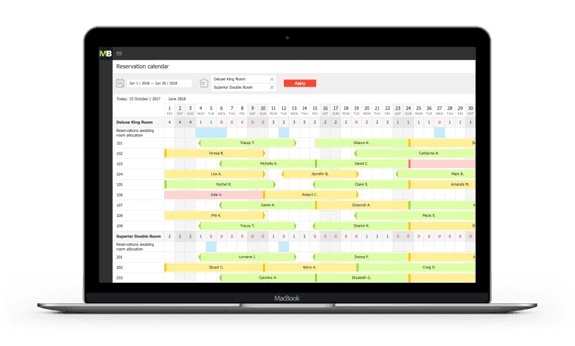Imagine the following situation: a potential guest visits your hotel website, gets the necessary information, falls in love with your place and is ready to reserve a room expecting a wonderful vacation but…there’s no means by which they can book online. All you have is your email and phone number on the Contacts page, but the client gets discouraged by language barrier/time zone difference/phone call expenses, and you lose him. In a worse case, a customer doesn’t receive a reply via email or your busy admins don’t pick up the phone, and the client reserves a room in a different hotel telling friends about his regret. You lose several potential guests.
How to avoid such problems? Regardless of size, location and format, your hospitality business needs an Internet booking engine. In this guide, we will cover the nuts and bolts of online booking software and discover how it can benefit your company.
All You Need To Know About Internet Booking Engines
Before we delve deep into the functions, pros, and cons of such software, we should find out what is online booking engine, and how it works.
What is online booking system?
An internet booking platform is a product you can use for reservation arrangement. They enable hotel administrators to receive booking requests online from the web and better deal with their telephone and in-person reservations. However, this is only the tip of an iceberg.
A web booking engine enables a client to indicate their needs and requirements, for example, place of departure, destination, flight date, return date and class of travel. When this data is submitted, the IBE will offer a rundown of accessible air tickets, lodgings, and journeys which the client would then be able to book.
Thus, instead of visiting numerous travel agencies, travelers can simply visit an online booking platform and figure out a perfect option for their trip. It will already include air tickets, hotel room, and car rentals/local tours/amenities (optionally).
The genuine value of an IBE lies in the possibilities for business. Any hotelier can find an affordable package jam-packed with essential features and tools. Each IBE has its own pricing rules, customizable display for different users and channels, set of available properties, business rules, and payment gateways. The market for booking engines is present by both giants like Airbnb or Expedia, and smaller location-specific booking platforms.
How does it work?
Say, you have a hotel website and want to enable online booking by visitors from all over the world. You can simply create a booking form on your site, but the number of visitors might not be satisfying. This is where web-based reservation engines come in handy. Here’s how it works:
- You get connected to an IBS by registering your property.
- You create and customize reservation form that must be filled and submitted by customers willing to book a room.
- Once a visitor finds your property in the search results of the IBS, he submits all necessary data, pays for accommodation in advance fully or partially (it’s an optional setting).
- The booking is registered in IBS, and details are automatically updated across all booking channels within seconds. Any other website visitor cannot book the same room/property again.
- Congratulations! You have one more happy guest served properly. Prepare your rooms for a visit!
Note that if a customer cancels the booking, this data is also automatically updated across the entire system, and the property will be available again. No need for manual corrections.
A Sneak Peek Into The History Of IBE
Before the first internet booking engine for airlines and hotels appeared, leading airlines used alternative solutions for flight ticket reservation.
At the dawn of American aviation history, there were not so many passengers and flights. While ticket fares were managed by the Civil Aeronautics Board, the information about routes and schedules could be found in the Official Airline Guide, and travel operators would reveal the information about reservations by telephone. But as the number of passengers grew, this manual system could no longer cope with the growing volume.






















